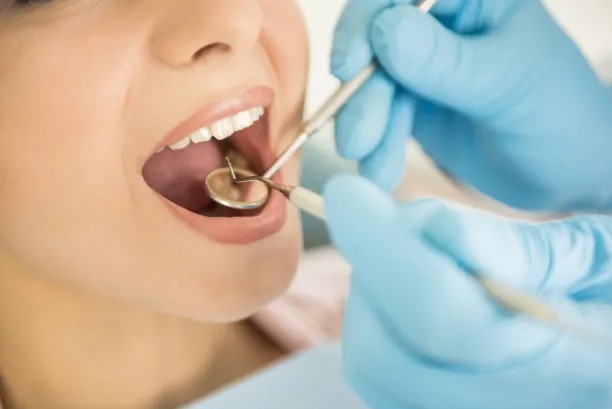Summary: Understanding periodontal disease is crucial for maintaining oral health and ensuring overall well-being. This article explores the definition of periodontal disease, its impact on oral health, the connection between oral health and overall health, as well as long-term prevention and management strategies. Recognizing the signs and symptoms of periodontal disease can aid individuals in seeking timely treatment, while effective oral hygiene practices and professional dental care can combat the disease. The intertwining of periodontal health with systemic conditions highlights the need for comprehensive care. This article aims to provide a thorough overview of how periodontal disease affects not only dental health but overall quality of life.
1. Definition and Stages of Periodontal Disease

Periodontal disease, commonly referred to as gum disease, encompasses inflammatory conditions affecting the supporting structures of the teeth. The disease typically progresses through several stages, beginning with gingivitis, which involves inflammation of the gums due to plaque accumulation. If left untreated, gingivitis can develop into periodontitis, a more severe form where the infection progresses deeper into the supporting bone structure.
In the initial stage, symptoms may be mild and often unnoticed, primarily characterized by redness and swelling of the gums. As the disease advances, patients may experience increased pocket depth between the gums and teeth, gum recession, and even tooth mobility. Understanding these stages is essential for early intervention and effective management.
People should regularly evaluate their oral health, as timely recognition of symptoms can prevent the progression of periodontal disease. Regular dental check-ups, along with self-examinations, can help identify warning signs early on, allowing for prompt treatment.
2. The Impact of Periodontal Disease on Oral Health
Periodontal disease significantly affects oral health, leading to a range of complications if not managed adequately. One of the most concerning effects is tooth loss. As the bone and soft tissue supporting the teeth deteriorate, dental mobility increases, ultimately leading to extraction if rehabilitation is not undertaken.
Beyond tooth loss, periodontal disease can cause persistent bad breath and changes in bite alignment. The inflammation associated with gum disease may also cause discomfort when chewing, adversely affecting overall dietary habits and nutrition. Proper oral health is closely linked to digestive health; hence, unresolved periodontal conditions can have cascading effects on one’s general dietary practices.
Furthermore, the psychological impact of periodontal disease should not be overlooked. Individuals with noticeable oral health issues, such as gum disease, may experience low self-esteem and reduced confidence, particularly in social settings that require smiling or speaking. Maintaining good oral health can thus contribute to positive self-image and improved mental well-being.
3. The Connection Between Oral Health and Overall Well-being
The relationship between oral health and overall well-being is increasingly recognized by researchers and health practitioners. Studies indicate that periodontal disease may increase the risk of systemic diseases such as diabetes, heart disease, and respiratory conditions. The inflammation stemming from gum disease can trigger systemic inflammatory responses, exacerbating these conditions.
For instance, individuals with diabetes may struggle to control their blood sugar levels more effectively when they also have periodontal disease. Conversely, gum disease can provoke cardiovascular problems, as bacteria from the mouth can enter the bloodstream and affect heart health. This bidirectional relationship underscores the importance of treating periodontal conditions to mitigate risks associated with other systemic health issues.
Furthermore, poor oral health can be a precursor to health disparities, especially in underserved populations. Access to dental care is often limited, leading to a higher incidence of untreated periodontal disease and its related complications. Public health initiatives focusing on education and accessibility can help reduce these risks and contribute to better overall health.
4. Long-term Prevention and Management Strategies
Effective long-term prevention of periodontal disease revolves around consistent oral hygiene practices. Brushing twice a day with fluoride toothpaste and flossing daily are fundamental in mitigating plaque buildup. Employing additional tools such as mouthwash can provide extra protection against bacteria.
Regular dental check-ups are critical for early detection and management of periodontal disease. Professional cleanings help remove tartar, which cannot be eliminated by standard brushing alone. Dentists can also provide personalized advice and dental products suitable for individual needs, enhancing preventive measures.
Moreover, lifestyle factors play an influential role in oral health. A balanced diet rich in vitamins and minerals supports gum health, while quitting smoking can notably decrease the risk of periodontal disease. Maintaining general bodily health through exercise and stress management can also contribute positively to oral health outcomes.
Summary:
In summary, understanding periodontal disease, its stages, and its impact on both oral health and overall well-being can significantly enhance long-term health outcomes. Preventive measures and effective management strategies not only safeguard oral hygiene but also reinforce the connection between oral health and systemic wellness, demonstrating that taking care of teeth and gums is paramount for overall well-being.
This article is compiled by Vickong Dental and the content is for reference only.
Vickong Dental
Vickong Dental is a large medical group established in Hong Kong in 2008 by professors from well-known medical universities in Guangdong and Hong Kong, as well as medical doctors from key national '985' universities (including Master's supervisors and senior professors). The chain of branches brings together expert dentists with PhDs and Master's degrees from Hong Kong and Mainland China, committed to providing high-quality dental treatment.
"Vickong Dental Practices the University Motto of 'Healing and Serving Society,' with a Stable Operation for Sixteen Years. It Has Been honored with Hong Kong Enterprise Leaders's Choice,' and is a Global Trusted Implant Center for the Nobel Implant System. Recommended by Hong Kong Metro Broadcast and Guangdong Television, it Serves Customers from Over Thirty Countries and Regions, Gaining the Trust and Favor of Citizens from the Guangdong-Hong Kong-Macau Greater Bay Area and Surrounding Cities.

Thousands of customers' unanimous praise
The most recognized and highly recommended dental service by customers in the Guangdong-Hong Kong-Macau Greater Bay Area
We Ensure You Receive Detailed Care and Attention Here
Hong Kong standards, Shenzhen prices, Your Trusted English-speaking dentists

Vickong Dental Medical-Grade Instrument Disinfection Process
Vickong Dental Medical-Grade Instrument Disinfection Process

Vickong Dental Chain: A Warm and Comfortable Environment for Treatment






Appointment Hours

Q&A
Why choose Vickong Dental?
Vickong Dental practices the university motto 「Medicine to Benefit Society」, with each branch bringing together highly qualified dentists with doctoral and master’s degrees from Hong Kong and the Mainland, and has maintained seventeen years of steady operation。Recipient of 「2024 Hong Kong Enterprise Leaders Brand」, 「2025 Hong Kong Enterprise Leaders Brand」, a Nobel Biocare Global Trusted Implant Center, and a brand recommended by Metro Radio Hong Kong and Guangdong TV。
To date, we have served customers from more than thirty countries and regions,earning exceptionally high word-of-mouth recognition and trusted recommendations from residents across the Guangdong-Hong Kong-Macao Greater Bay Area and surrounding cities
We have eight major branches in Zhuhai、Shenzhen,and a consultation and service assurance center in Hong Kong,so you can book a free consultation at any time for any questions,which is very reassuring.
If I do not accept the quotation after the CT scan, will I be charged??
No! As long as the actual treatment has not started, you will not be charged any fees.
Will there be any additional charges during the treatment process?
No, there won’t be any additional charges. Before treatment begins, we will clearly explain the treatment plan and its corresponding fees. Only after the patient agrees and signs the consent form will we proceed with the dental service.
Can I pay in Hong Kong dollars?
Yes. Vickong Dental accepts payment in Hong Kong dollars. The amount will be converted based on the exchange rate of the day, and the applicable rate will be clearly communicated to you in advance.
Can I reschedule my appointment at any time?
Yes. Please contact us via **WeChat** or **WhatsApp** as early as possible, providing your original appointment time and details, along with your preferred new date and time slot for rescheduling.













